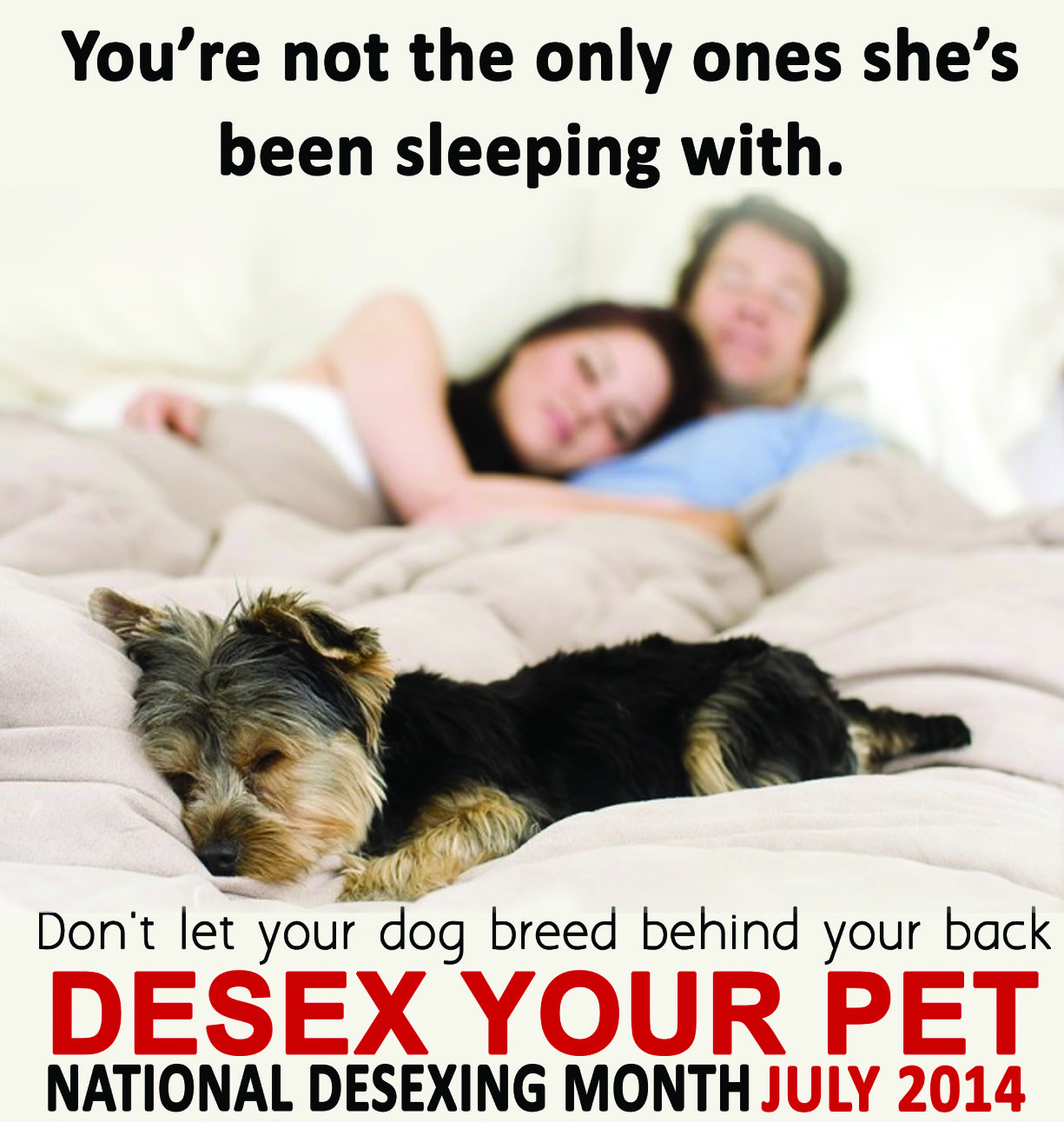You can’t teach your dog or cat about safe sex

With the spring breeding season just around the corner, Wingecarribee Shire Council is encouraging residents to desex their pets.
July is National Desexing Month and the perfect time to desex your pets and ensure their microchip and registration details are up to date.
Research by the Animal Welfare League of QLD shows that 65 per cent of people who surrender undesexed cats and dogs to shelters and pounds have not desexed their pet because “they just didn’t get around to it” or because of financial circumstances.
Wingecarribee Shire Council’s Senior Ranger Troy McGlynn said the benefits of desexing pets are numerous and can have a positive impact on the whole community. “Along with the obvious benefit of less unwanted puppies and kittens, desexing your cat or dog can also lead to better behaviour, less inclination to escape, and positive health benefits,” he said.
Having your pet desexed means it is less likely to wander and get lost, impounded or killed on the roads. Health benefits include a decreased chance of mammary and ovarian cancer, testicular and prostate cancer, FIV, and urinary tract disease among others.
“There are many myths surrounding the desexing of cats and dogs, with many people believing their pet will lose its personality or get fat, but this is simply not true,” Mr McGlynn said.
“Many owners find it easier to care for desexed cats and dogs because they are often more affectionate, less aggressive and generally happier and healthier when their focus is on being part of the family rather than trying to escape and find a mate.”
Having your pet desexed is a quick and simple procedure carried out by the vet and takes little recovery time.
While National Desexing Month only runs for July, the National Desexing Network helps pet owners experiencing financial hardship to find a local veterinarian who will desex their pets at a reduced fee all year round.
To find a participating vet close to you, please visit the NDN website: www.ndn.org.au/apply-for-low-cost-desexing.
To update your pets registration details please call Council on 4868 0888 or email wscmail@wsc.nsw.gov.au with all of the relevant information.
